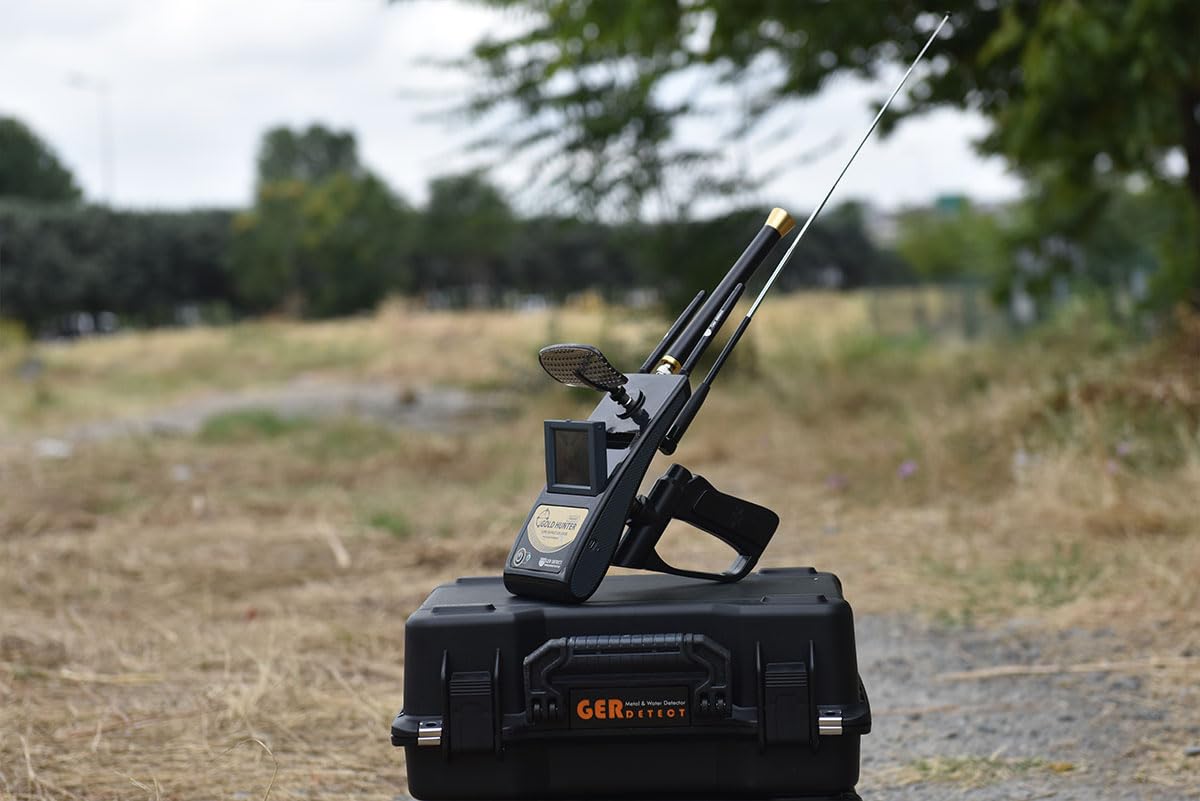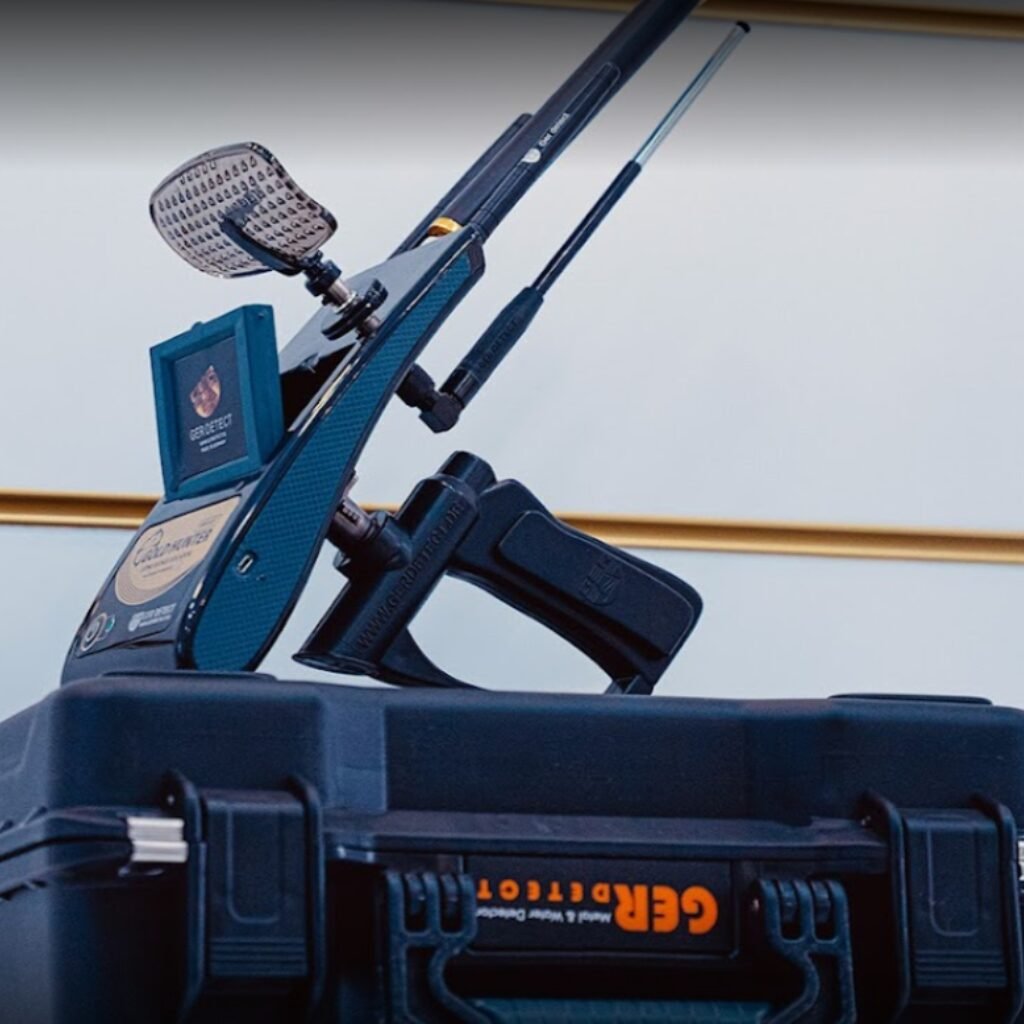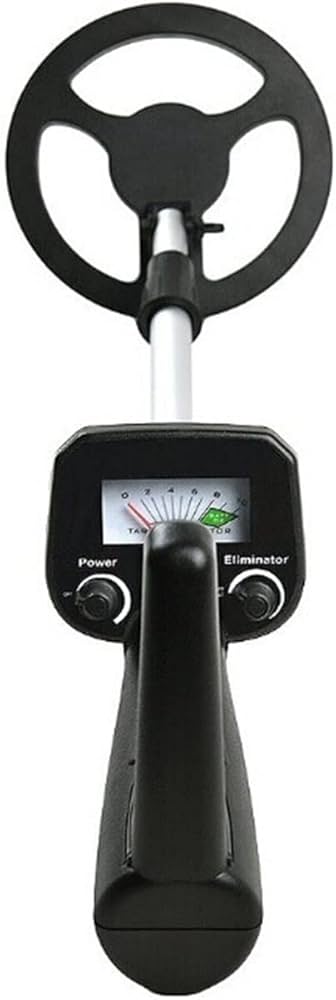Metal Detector Shop: Discover the Best Destination for All Your Equipment Needs Are you on the hunt for a reliable and high-quality metal detector shop? Look no further. Whether you're a seasoned treasure hunter or a beginner in the field, our shop offers an extensive range of metal detecting equipment to suit all your needs. From metal detectors and accessories to expert advice and customer support, we are dedicated gold detector made in germany to providing the best products and service for all enthusiasts. Join us and discover the perfect metal detector shop for all your equipment needs.
Discover the Best Metal Detector Shop for All groundtech a2 Your Equipment Needs offers a wide range of metal detectors, accessories, and equipment for hobbyists, treasure hunters, and professionals. The shop carries leading brands and models, along with expert advice and support to help customers find the right equipment for their specific needs. Whether you're searching for coins at the beach, prospecting for gold, or conducting archaeological surveys, this shop has everything you need to succeed. With a focus on quality, reliability, and customer satisfaction, it's the go-to destination for all things related to metal detecting.
Discover the Best Metal Detector Shop for All Your Equipment Needs is a one-stop destination for enthusiasts and professionals looking for high-quality metal detectors, accessories, and equipment. From entry-level models to advanced technology, the shop offers a wide selection to suit various purposes such as coin shooting, relic hunting, gold prospecting, and underwater detecting. In addition to metal detectors, the shop provides customers with expert advice, support, and resources to ensure they make informed decisions about their purchase. With a focus on customer satisfaction and a passion for the hobby, the shop aims to meet the diverse needs of metal detecting enthusiasts.
10 Essential Metal Detector Accessories for Beginners
okm exp 6000 professional plus

1. Pinpointer: This accessory helps to precisely locate the target and makes digging much easier. 2. Pouch: A pouch or belt helps to keep your accessories, finds, and trash separate and organized while detecting. 3. Headphones: Good quality headphones will allow you to hear even the faintest signals and minimize background noise. 4. Digging tool: A sturdy digging tool is essential for easily digging up targets without damaging them. 5. Sand scoop: If you plan on doing beach detecting, a sand scoop is a must-have for efficiently retrieving items from the sand. 6. Coil cover: Protects the coil of your metal detector from scratches and damage, extending its lifespan. 7. Batteries: Always have spare batteries on hand to avoid cutting your detecting session short. 8. Finds pouch: A separate pouch for your valuable finds helps to keep them safe and organized. 9. Coil cover: Protects the coil of your metal detector from scratches and damage, extending its lifespan. 10. Trowel: A trowel is useful for efficiently digging in tough soils and for carefully uncovering targets.
Choosing the Right Metal Detector for Your Needs

When choosing a metal detector, consider factors such as the types of objects you want to find, the terrain you will be searching in, and your level of experience. If you are a beginner, you may want to start with a simpler, more user-friendly model. If you are more experienced or have specific targets in mind, you may want a detector with more advanced features and settings. It is also important to consider the weight and size of the detector, as well as any additional accessories or support available. Finally, consider your budget and do some research on the best metal detectors within your price range.
The Top 5 Metal Detectors for Finding Gold

1. Minelab GPZ 7000: This detector is known for its depth and sensitivity, making it an excellent choice for finding small gold nuggets and deep pockets of gold. It also features advanced coil technology for improved detection. 2. Garrett AT Gold: Specifically designed for gold prospecting, this metal detector offers high sensitivity to small gold nuggets and a waterproof design, allowing for use in shallow water or wet conditions. 3. Fisher Gold Bug 2: This lightweight and high-performance metal detector is known for its ability to find small gold nuggets in highly mineralized soil. It also offers adjustable settings for customized detection. 4. Nokta Makro Gold Racer: With its high frequency and advanced features, this metal detector is ideal for finding small to medium-sized gold nuggets. It also offers excellent discrimination capabilities for filtering out unwanted targets. 5. White's Goldmaster GMT: Known for its ability to handle highly mineralized soil, this metal detector is effective at finding gold nuggets in challenging environments. It offers automatic ground balance and adjustable settings for optimal gold detection.
How to Properly Maintain Your Metal Detector
Properly maintaining your metal detector is essential for its efficiency and longevity. Here are some important tips to keep your metal detector in good working condition: 1. Clean your metal detector regularly, especially after each use. Use a soft, damp cloth to wipe down the exterior and remove any dirt, dust, or debris that may have accumulated during your search. 2. Avoid exposing your metal detector to extreme temperatures or moisture. Store it in a dry, cool place when not in use to prevent damage to the internal components. 3. Check the batteries regularly and replace them when necessary. Some metal detectors may require specific types of batteries, so be sure to follow the manufacturer's recommendations. 4. Inspect the coils and shaft for any signs of wear or damage. If you notice any cracks, loose connections, or other issues, address them promptly to prevent further damage. 5. Keep the connections and control panel clear of any obstructions or debris. Use a small brush or compressed air to remove any dirt or sand that may have accumulated in these areas. By following these maintenance tips, you can ensure that your metal detector remains in optimal working condition and continues to provide accurate and reliable results during your treasure hunting adventures.
The Dos and Don'ts of Metal Detecting Etiquette
The dos and don'ts of metal detecting etiquette include obtaining permission before detecting on private property, filling in any holes dug during the search, bringing along a trash bag to collect any trash found, and adhering to any local regulations or laws regarding metal detecting. Metal detector hobbyists should also be respectful of other people's property, avoid trespassing, and be mindful of leaving the area as they found it. It is also important to report any significant historical findings to the appropriate authorities. On the other hand, it is not considered good etiquette to dig without permission, damage property, or leave behind trash or debris.
Finding Rare Treasures: Tips for Metal Detecting Success
Finding Rare Treasures: Tips for Metal Detecting Success is a comprehensive guide for metal detecting enthusiasts. The book provides valuable tips and techniques for improving your success in finding rare and valuable treasures. It covers topics such as choosing the right equipment, understanding different metal detecting techniques, and identifying potential locations for treasure hunting. Whether you're a beginner or an experienced detectorist, this book offers valuable insights to help you make the most of your metal detecting hobby.
The Best Metal Detector Brands on the Market
Some of the best metal detector brands on the market include Minelab, Garrett, Fisher, Nokta Makro, and XP. These brands are known for producing high-quality metal detectors that cater to a wide range of needs and budgets. They offer features such as advanced target identification, waterproof construction, and ergonomic designs for comfortable use. Whether you're a beginner or a seasoned treasure hunter, these brands have options suited for various skill levels and applications. When choosing a metal detector, it's essential to consider factors such as the type of targets you're looking for, the environment you'll be detecting in, and your budget.
Exploring the History of Metal Detecting
Exploring the history of metal detecting reveals that the practice dates back to the late 19th century, with the invention of the first metal detector by Alexander Graham Bell in 1881. However, it wasn't until the 1920s that metal detectors began to be used for industrial and military purposes. During the 1950s and 1960s, metal detecting became more popular as a hobby, with individuals using simple homemade detectors to search for coins, relics, and other buried treasures. In the 1970s, the development of more advanced metal detecting technology led to a surge in the hobby's popularity, as well as the discovery of significant archaeological finds. In recent years, metal detecting has become more regulated in many countries, with laws and regulations in place to protect archaeological sites and artifacts. Despite these challenges, metal detecting continues to be a popular hobby and a valuable tool for uncovering the past.
Metal Detecting 101: A Beginner's Guide
Metal Detecting 101: A Beginner's Guide is a comprehensive resource for those looking to get started in the hobby of metal detecting. The book covers topics such as choosing the right metal detector, understanding the different types of metal detecting and the best environments for success, and the proper techniques for using a metal detector. It also includes tips for finding and identifying valuable objects, as well as advice on how to properly clean and care for your finds. Written in an accessible and easy-to-understand manner, this guide is perfect for anyone looking to take up the hobby of metal detecting.
Discovering The Most Popular Locations for Metal Detecting
Discovering the Most Popular Locations for Metal Detecting provides essential information on the best places to use a metal detector, including historical sites, beaches, parks, and old homesteads. It also covers tips for obtaining permission to detect on private property, ways to research potential locations, and techniques for finding valuable items. The book caters to beginners and experienced metal detectorists alike, offering valuable insights into maximizing the potential for successful treasure hunting.
